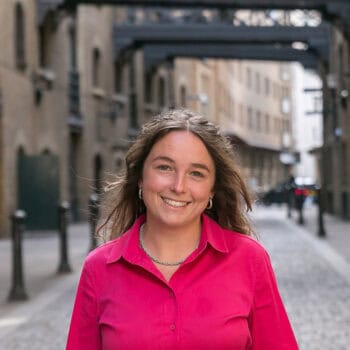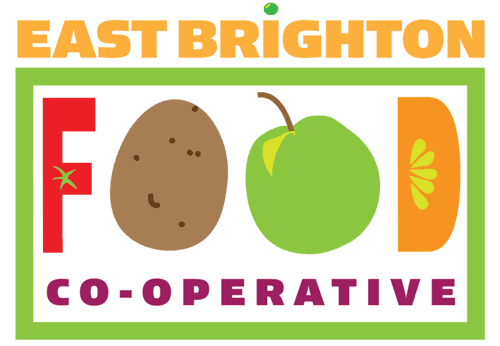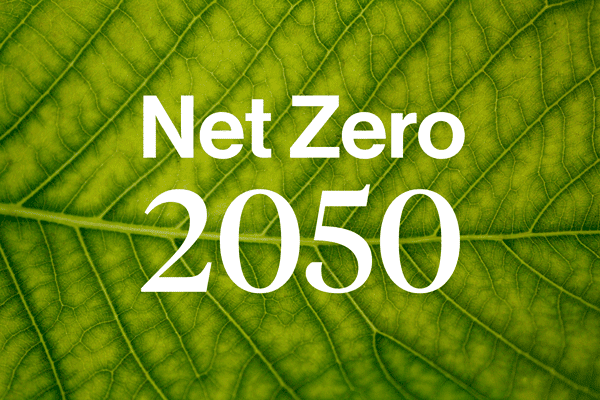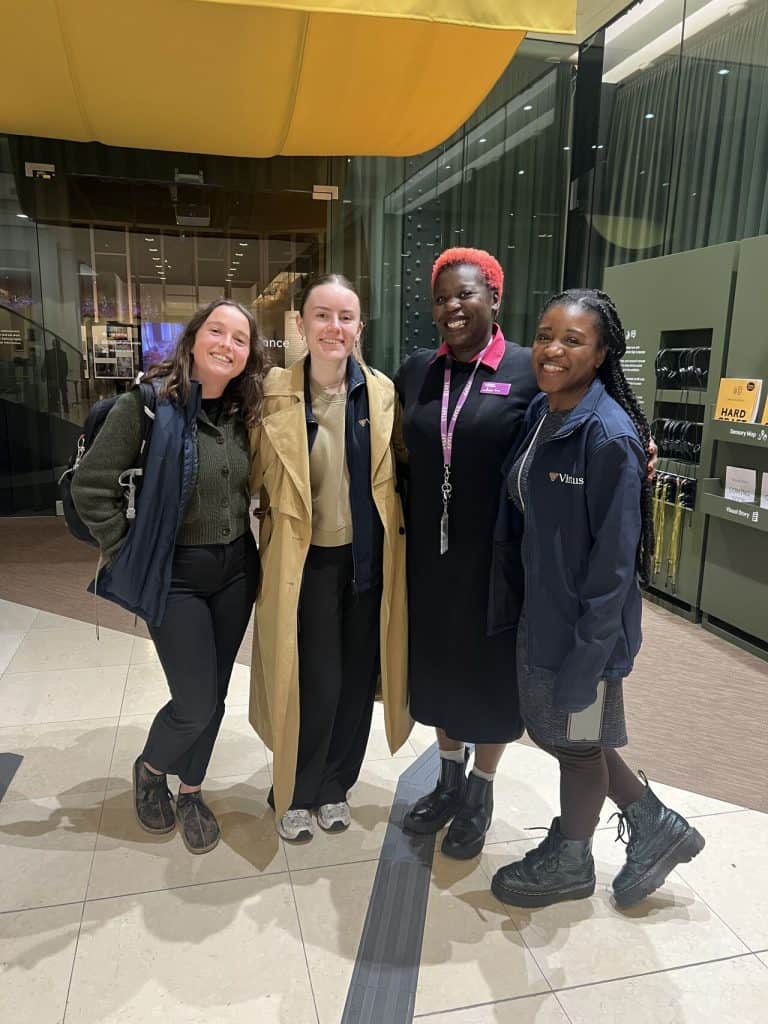At Virtus Contracts, we believe that sustainability isn’t just a trend – it’s a responsibility. Leading this mission is our Head of ESG, Poppy, who’s redefining how Environmental, Social, and Governance principles can be embedded into the heart of commercial construction. From reducing waste through circular economy strategies to empowering teams through education and engagement, Poppy’s role touches every part of our business.
In this interview, she shares her approach to sustainable leadership, the challenges of building something from the ground up, and why meaningful ESG strategy is about more than just carbon targets – it’s about people, purpose, and long-term impact.

Poppy Cunningham
“We need to start thinking about waste as ‘excess material’, and we need to consider this at the very earliest stages of every project.”
To start, could you explain what ESG stands for and why it has become such an important focus for businesses, and more specifically, the commercial construction sector, today?
ESG stands for ‘Environmental, Social & Governance’, it really represents the 3 pillars of sustainable development, which aim to ensure that what we do today does not have adverse impacts on our natural environment, our people, and our economic stability in the future. Most people will be aware of the climate crisis we have on our hands due to the intense release of greenhouse gas emissions and degradation to our ecosystems, which our industry has a large part to play in. Decades of extracting materials and carbon-intensive manufacturing processes have put our planet at risk of irreversible damage. When people think about sustainability and ESG, often the ‘E’ gets most focus, but improving our industry’s practices to be more sustainable will mean that people and communities’ benefit across the world, as well as economic stability.
Can you walk us through your role as the Head of ESG at Virtus? What does your day-to-day involve, and what are the key components of your ESG strategy for Virtus?
Similar to all previous roles I have had in sustainability and ESG, my day-to-day can be massively varied, as I try to get involved in every corner of the business. I spend lots of time engaging with site teams, working to come up with sustainable solutions on site, and also helping them to collect important data for our carbon report. I spend a lot of time articulating our successes so that we can evidence these in tenders and work-winning pieces. I also spend time reviewing, developing and writing policies to ensure we are running a fair, safe, and inclusive business. I spend a lot of time understanding Virtus’s processes, and after almost 1 year in the role, I hope to make meaningful changes to ensure we are developing sustainably all around.
What was the biggest challenge you faced when you first took on the role of Head of ESG, and how did you overcome it?
Taking on a completely new role for the business meant that I was not only learning what this looked like, but also making sure everyone else understood why I was here and what I wanted to achieve. Everyone has been so welcoming, and I like to make sure I visit all of our site teams as regularly as possible, to avoid getting stuck behind a screen. I think understanding what inspires different people is important when implementing any sort of change, so that everyone is brought along on the journey, and that we can enjoy it along the way!
What has been your proudest achievement so far?
I think I have been most proud of implementing our Circular Economy policy on site and getting some real success stories when it comes to re-use. I have felt a real sense of the site team’s interest and willingness when it comes to identifying items for re-use prior to strip out, which is neither something they had been asked to do before, nor anything we are yet to get a monetary benefit for, everyone just understands the bigger picture goal. I can’t wait to get some proper case studies written up to share with our stakeholders.
What kind of community outreach or engagement initiatives does Virtus participate in, and how do these align with the company’s ESG goals?
Our ESG strategy has 5 main focus points: Environmental Management, Carbon Reduction, Circular Economy, Social Value, and Employee Empowerment. As part of our Social Value focus, we have the following targets for 2025:
• Fundraise a minimum of £2500 per year for charitable donations
• Complete one company volunteering day per year
• Complete one educational or workforce upskilling engagement activity per year
In the year 2024, we raised £15,627 for charities including Mental Health UK, spent 783 hours volunteering and fundraising.
Some of our most recent community engagement initiatives include:
South Norwood Community Kitchen –volunteered hours of consultancy and labour to help create a community wellbeing garden to improve high levels of mental ill-health in the community. This garden is also helping to provide food for the community kitchen.
East Brighton Food Co-op – We are collecting food bank donations and volunteering to deliver hot meals to vulnerable members of the community.
UCL Knowledge Exchange Programme – Providing industry expertise to develop a model for retrofitting biodiverse green roofs around London.


How do you address the challenges that come with balancing sustainability with cost-effectiveness and the demands of clients in the construction industry?
Usually, sustainable choices can actually save money in the long run, however, it is sometimes hard to evidence that, and budgets always come first. I find that making sure you are aligning with the client’s own ESG agenda is important to allow for collaboration so that both parties are invested.
It is widely understood that all stakeholders in the construction industry must improve their quality and transparency. As Virtus works with several sub-contractors, how do you monitor the sustainability of supply chains?
We carry out subcontractor PQQs to understand our supply chain and its commitments to ESG. However, I believe that the most impactful thing we can do is help subcontractors along their journey in sustainability, by providing time and support to make any changes, especially if they are a little bit behind the ‘curve’
How do you work with other departments at Virtus to integrate ESG into the wider company strategy and culture?
As head of ESG, my only expertise is in this. I really rely on working with everyone at Virtus as the real construction and commercial experts to understand first how our practices work, to then be able to consider any changes we make. Regular catch-ups to ensure all parties are aware of any changes are essential, because I need honest feedback and insight into what will and won’t work on the ground. There is no point in implementing the most ‘sustainable’ choices if it means that what we do on site is compromised. This goes against the very essence of ‘sustainability.’
Business as usual in many geographies today is that excess building materials — both surplus in the construction process to those available at end-of-life stage — end up as waste. How can construction companies reduce material waste and reuse resources through circular economy practices? What is Virtus doing?
We need to start thinking about waste as ‘excess material’, and we need to consider this at the very earliest stages of every project. Architects, clients, and contractors need to collaborate to first design out waste as a priority, and to consider what resources are available already, especially in the fit-out industry, where often good material gets thrown in the bin for reasons other than ‘impressing the client with something new and shiny’. 91% of all carbon emissions from fit out projects come from the disposal and processing of material. If we can push circularity and re-use good materials where possible, this can be tackled.
At Virtus we carry out pre-refurbishment audits prior to any strip-out works. We then work with partners such as Material Index to find new homes for valuable materials. This can include selling, donating, or simply retaining elsewhere across our projects.
It is estimated that 230 billion square meters of new buildings will be constructed in the next 40 years worldwide. How do you see the role of ESG evolving over the next 5 to 10 years in the commercial construction industry, and how will Virtus stay ahead of the curve?
I think people are starting to realise that everyone’s role needs to become more sustainability focused. We need to move away from having 1 (or a few) stationarity champions who are trying to do everything, to models where everyone is aware of their part to play, as experts in each field.
At Virtus we are halfway through our 12-month ESG upskilling programme, where we are delivering monthly CPD sessions and toolbox talks to all employees. This is with the aim of addressing the green skills gap in the industry, and to hopefully inspire and inform everyone to make more sustainable choices and business decisions.


The UK is aiming to meet its net-zero target by 2050. Do you think it will be achieved?
I sometimes find it hard to believe it can be possible, thinking there is such a long way to go, but I do have hope for upcoming technologies such as those in carbon removal and materials. Science has a massive part to play, but I think the most important factor is human collaboration and shared goals around the world, which can be a little bit harder to predict. We must stay positive and keep taking all the little steps, and eventually, I do think we will get there.
Do you have any resources (websites, podcasts, books, etc.) where people can learn more about ESG?
Quick Fire Questions
What’s a personal habit you’ve adopted to live more sustainably?
Meat-free weekdays, cycle everywhere possible & try to only buy second-hand clothes.
Carbon neutral or net zero – which is the more realistic goal for the construction industry right now?
Net zero should always be the goal, as this is more measurable and focuses on making actual reductions by changing the way we do things, before considering any offsets.
If you weren’t working in ESG, what other field would you be in?
I’d love to work in conservation or ecology where I could be outside all day.
What’s one thing you wish everyone understood about ESG?
Can I have 2 things – 1. That it’s not just about the environmental part. 2. We have to look at the bigger picture, making changes won’t always save money initially, but the benefits for the industry in the long term are the real goal!
As our conversation with Poppy reveals, ESG at Virtus isn’t about ticking boxes – it’s about transformation. Whether it’s launching our circular economy policy on site, collaborating with communities, or educating every employee through our upskilling programme, her work is creating tangible, lasting change. The future of construction will require resilience, innovation, and shared accountability – and with leaders like Poppy at the helm, we’re confident Virtus will remain ahead of the curve. Because building better doesn’t just mean smarter – it means more responsible, more inclusive, and more sustainable.
Address
Virtus
Unit 9 The Circle
Queen Elizabeth Street
London, SE1 2JE
Telephone
We would love to hear from you
Please fill out the form below if you would like to contact us










